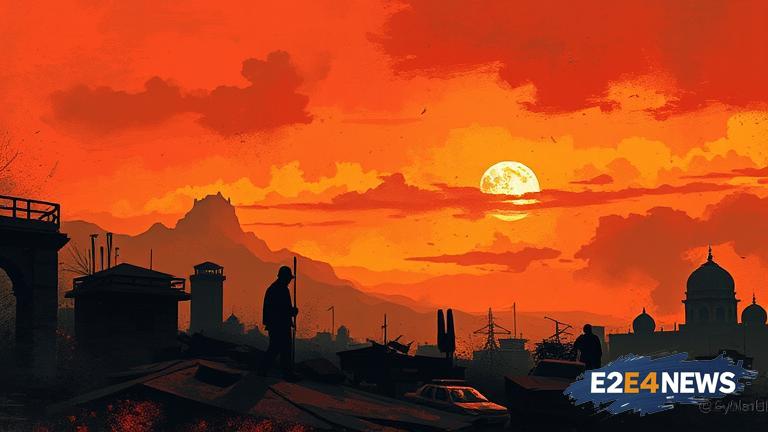The day of August 5 will be etched in the memories of the people of Jammu and Kashmir as a dark chapter in their history. It was on this day in 2019 that the Indian government made the controversial decision to revoke the special status of the region, granted under Article 370 of the Indian Constitution. This move was met with widespread criticism and outrage from the people of Kashmir, who felt that their rights and autonomy were being stripped away. The decision was made without consulting the people of Kashmir, and it was seen as a betrayal of the trust that they had placed in the Indian government. The revocation of Article 370 has had far-reaching consequences for the people of Kashmir, including the loss of their special status, the erosion of their autonomy, and the imposition of a new system of governance that is seen as oppressive and discriminatory. The people of Kashmir have been living under a state of siege, with their movement and communication restricted, and their rights and freedoms curtailed. The Indian government’s decision has also had a significant impact on the economy of Kashmir, with trade and commerce coming to a standstill. The region’s tourism industry, which was once a major contributor to the economy, has also been severely affected. The people of Kashmir are struggling to make ends meet, and the region is facing a severe humanitarian crisis. The international community has been critical of the Indian government’s actions, with many countries and organizations expressing concern over the human rights situation in Kashmir. The United Nations has also called for the Indian government to respect the rights and autonomy of the people of Kashmir. Despite the criticism, the Indian government has remained defiant, and has continued to impose its will on the people of Kashmir. The people of Kashmir are determined to resist the Indian government’s actions, and are demanding that their rights and autonomy be restored. They are also calling for the international community to intervene and help resolve the crisis. The situation in Kashmir remains volatile, with protests and demonstrations taking place regularly. The Indian government’s actions have also had a significant impact on the region’s politics, with many political leaders and activists being arrested and detained. The people of Kashmir are facing a difficult and uncertain future, and it remains to be seen how the situation will unfold. The Indian government’s decision to revoke Article 370 has been widely seen as a mistake, and it is likely that the consequences of this decision will be felt for a long time to come. The people of Kashmir will continue to struggle for their rights and autonomy, and it is imperative that the international community supports them in their quest for justice and freedom. The situation in Kashmir is a complex and sensitive issue, and it requires a nuanced and thoughtful approach. The Indian government must take steps to address the concerns and grievances of the people of Kashmir, and work towards finding a solution that respects their rights and autonomy. The international community must also play a role in helping to resolve the crisis, and ensure that the human rights of the people of Kashmir are protected. The people of Kashmir deserve to live in peace and dignity, and it is the responsibility of the Indian government and the international community to ensure that this happens. The revocation of Article 370 has been a dark chapter in the history of Jammu and Kashmir, but it is not too late to make things right. The Indian government must take steps to restore the special status of the region, and work towards finding a solution that respects the rights and autonomy of the people of Kashmir.
